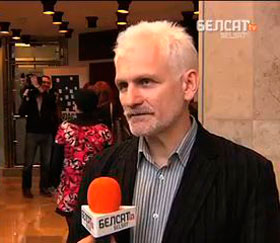Ales Bialiatski visiting Tunisia as international expert in transition to democracy conference
On 17-19 March the Tunisia capital hosted an international conference “Transition to Democracy in Tunisia”, visited by representatives of the country’s civil society, trade unions and mass media, as well as a number of international experts, including Vice-President of the International Federation for Human Rights Ales Bialiatski.
According to the Belarusian human rights defender, today, it is a very important period for Tunisia’s further development: there is an interim government and changes to the Constitution and the Electoral Code are underway.
“They have arranged the conference to, first of all, make it clear to themselves, as there are very important preparatory activities underway and the laws to be amended are likely to affect most crucial spheres, mass media, political parties, NGOs, freedoms of expression and assembly, in particular”, says Ales Bialiatski.
The international experts are expected to share positive and negative experience of transitional periods in their countries.
“I will speak about early 1990s, when we also adopted a Constitution and defined the political system of Belarus. I will also tell about the negative experience that brought our republic to the current usurpation of power”, says Mr. Bialiatski.
Ales Bialiatski said the political regimes of Belarus and Tunisia are twin-brothers, what concerns the crackdown on civil rights and harassment of civil society.
The Tunisian President Zine El Abidine Ben Ali left the country on 14 January 2011, as a result of a widespread popular protest movement against Ben Ali's government. The protest was supported by trade union leaders, famous artists and NGO activists.



















